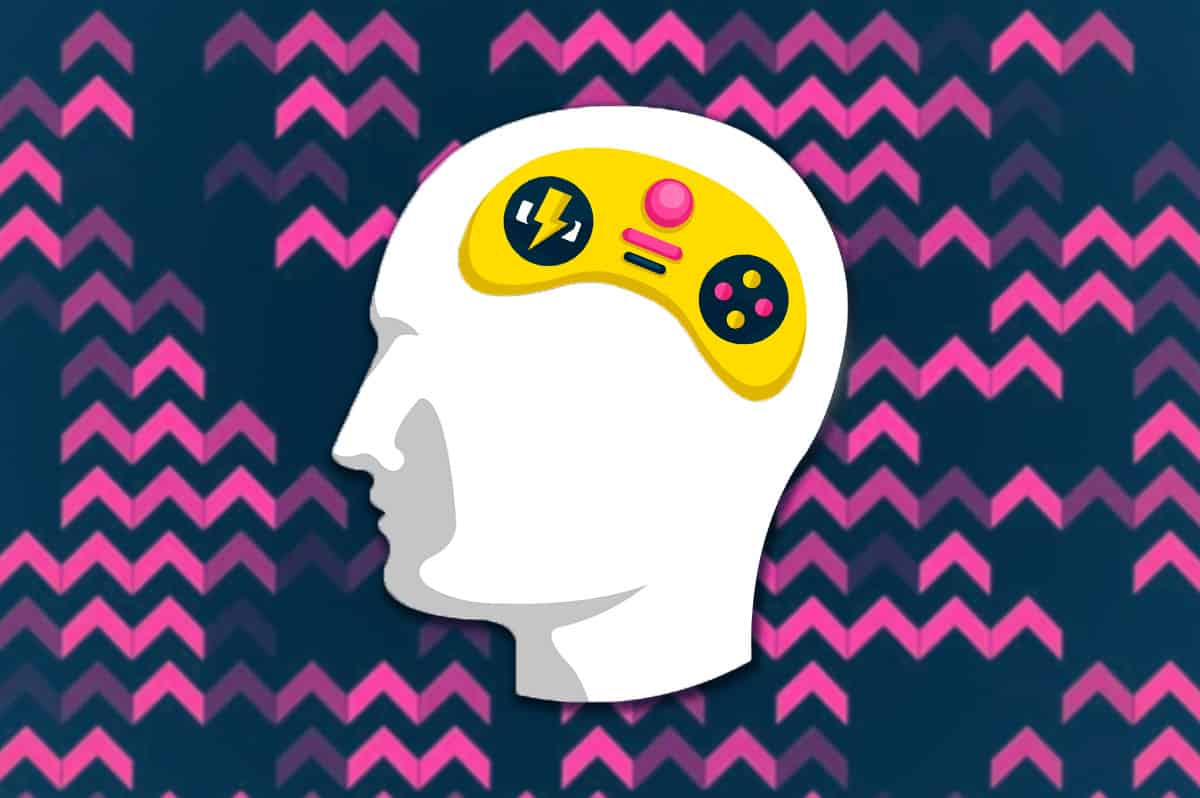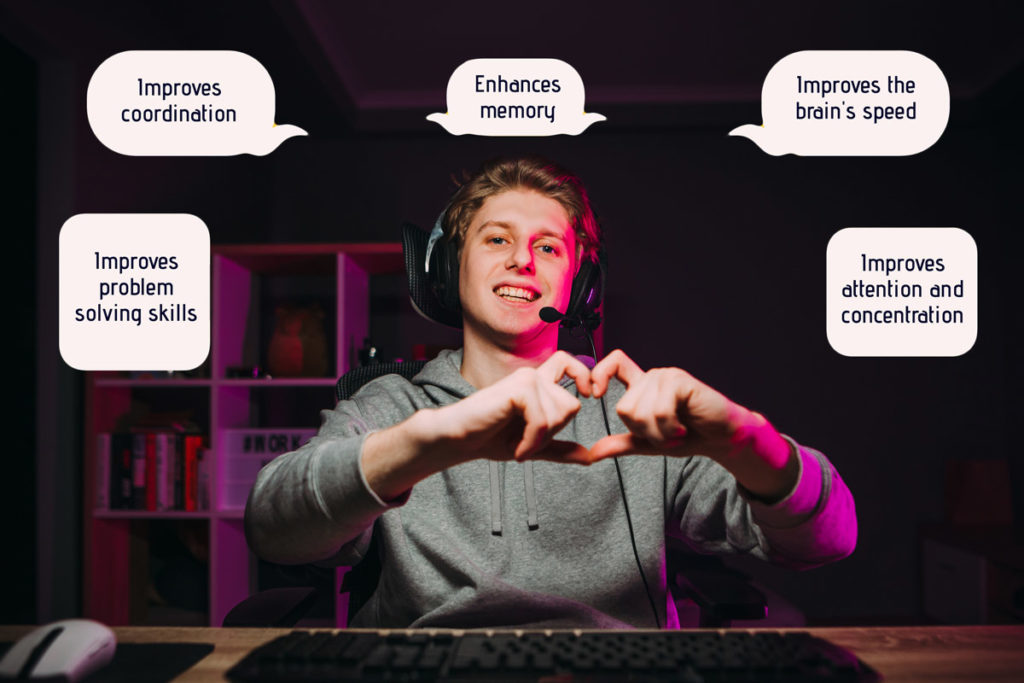
Do Video Games Make You Smarter? What Research Says
As the number of gamers worldwide continues to increase – including a high percentage of children and young people – the impact on their developing brain and cognitive abilities is a hotly debated topic – do video games make you smarter?
This article examines the specific ways video games can make you smarter and looks at the positive effects and potential risks of gaming. You can read on below or jump to a specific area of interest using the table of contents.
In short, the key will be in you or a loved one’s relationship to gaming and how their gameplay is affecting their quality of life. Balance, not just with gameplay but also with gaming-related platforms such as YouTube and Twitch is crucial for overall wellness and to gain the most benefit from play while reducing or eliminating the associated risks.
Gaming out of control? Get immediate help for you or your loved one’s gaming problem. Book a free Gameplan call now to learn if our program is the right fit for you.
5 ways video games can make you smarter

When played in moderation, video games can increase intelligence, enhance attention, boost memory, improve learning and have a positive impact on problem-solving:
Video games increase intelligence
Researchers at the Karolinska Institutet and Vrije Universiteit Amsterdam studied the link between the screen habits of 5,000 US children and how their intelligence developed over a period of two years. 1 1. KI: Video games can boost children's intelligence ×
The results showed that those children who spent an above-average amount of time playing video games increased their intelligence by approximately 2.5 IQ points more than the average. Whereas, watching TV and videos, and engaging with social media had no significant effect on their cognitive abilities.
However, the study did not consider the impact of their digital habits on other areas of their life such as school performance, physical activity, sleep or emotional well-being.
Another study supports the above findings about video games and IQ. The University of York found a link between skill at two multiplayer video games – League of Legends and Dota 2 – and high intelligence levels. 2 2. York: Multiplayer Video Games ×
Video games enhance attention
Researchers in the US and China looked at how video games effect attention. 3 3. UArk: Gaming can increase the brain's ability to focus ×
They studied students who were either expert gamers (2+ years’ experience playing action video games and in the top 7% of League of Legends players) or non-expert gamers (less than six months’ experience and in the lowest 11% of players). The students’ visual selective attention (the brain’s ability to focus on relevant information and disregard less relevant details) was assessed before and after gaming.
They found that both expert and non-expert gamers demonstrated improved attention skills after just one hour of playing video games. However, they emphasized that more in-depth research is needed to establish how long these effects might last.
Video games boost memory
First-person shooter games require players to rapidly react and respond to fast-moving situations. A study by the University of Leiden investigated whether playing these types of video games can boost memory. The research compared people who played for five hours per week with people who had never played video games.
They found that gamers outperformed non-gamers in the task they had devised and concluded that playing video games trains the brain to become more flexible in updating and monitoring new information, thus enhancing memory capacity.
Video games improve learning
Video games are increasingly being used to engage and motivate students, but do video games lead to learning gains? The American Psychological Association (APA) has looked at how video games effect learning and recognizes that more research is needed. 4 4. APA: Gaming ×
In 2015, they reported that over the last 20 years, there had been nine major reviews of research into the effectiveness of educational video games which had found the research to be “highly diverse, disorganized and unfocused, with a significant number of methodologically flawed studies.”
A subsequent study by Robles and Quintero in 2020 found that video games can be effective for teaching high school math skills. The students studied showed an improvement of around 14% in the topics covered. 5 5. Intelligent System for Interactive Teaching through Videogames ×
Video games increase problem-solving ability
Many video games require planning, strategic thinking and logic to succeed but does this result in gamers developing better problem-solving skills than non-gamers?
A 2013 Canadian study of 1,492 students over four high school years found that playing strategy games was positively linked to better problem-solving abilities and school grades in the next academic year. 6 6. More Than Just Fun and Games: The Longitudinal Relationships Between Strategic Video Games, Self-Reported Problem Solving Skills, and Academic Grades ×
The benefit of problem solving in video games is that players can try different ways to solve a problem without any long-term consequences. They may lose that game but can re-think their tactics in the next game or level. This trial-and-error approach is a useful life lesson – decisions may not be immediately obvious but trying out various options can be beneficial.
Read our article to find out more about the positive effects of video games.
The risks of video games

While gaming is a fun and positive experience for most people, it can have negative consequences for those who game excessively. Here are some of the impacts you may experience if gaming starts to dominate your life:
- Mental health conditions including anxiety, stress, depression and, in extreme cases, suicidal thoughts
- Physical health issues such as obesity, heart problems, dehydration, disrupted sleep and exhaustion
- Poor personal hygiene
- Unhealthy diet
- Loss of interest in other activities and laziness
- Relationship conflict
- Missed educational or career opportunities.
The bottom line
As this article has shown, playing video games can make you smarter and have a positive impact on your life, when played in moderation. In order to keep your gameplay in the healthy zone, check out our daily screen time guidelines.
If you play games in moderation – in conjunction with other hobbies and activities – you are likely to enjoy many benefits and video games can make you smarter. However, if the balance tips and video games start to take over your life, you may begin to experience problems and, in extreme cases, develop gaming addiction.
If you are concerned about your gaming habits – or a loved one’s behavior – take our short video addiction quiz to find out if you (or they) meet the criteria for problematic play.
Need help to control gaming?
If you, or a friend or family member, are experiencing any negative effects of gaming, we have several resources that can help:
- Respawn program to help gamers get control over gaming
- Reclaim program for families to create more balance with gaming
- Game Quitters community forum where you’ll find like-minded people
- Case studies of former video game addicts for inspiration
- Hobby tool to find replacement interests
- Gaming Disorder Clinical Training for mental health professionals.
You can also book a Gameplan call to discuss your situation. Limited spots are available.
Footnotes
- KI: Video games can boost children's intelligence ↩
- APA: Gaming ↩
- UArk: Gaming can increase the brain's ability to focus ↩
- York: Multiplayer Video Games ↩
- Intelligent System for Interactive Teaching through Videogames ↩
- More Than Just Fun and Games: The Longitudinal Relationships Between Strategic Video Games, Self-Reported Problem Solving Skills, and Academic Grades ↩
